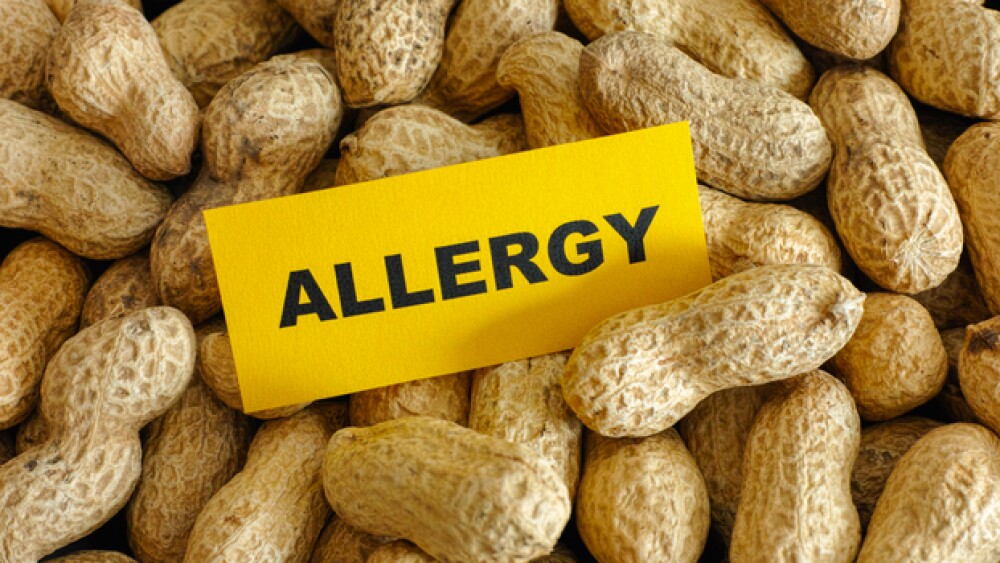After receiving daily doses of the therapeutic, 71% of the children could tolerate the equivalent of 16 peanuts and six months later, 21% of them still could.
An estimated 2% of American children are allergic to peanuts, a top eight allergen that is often reported to cause fatal or near-fatal allergic reactions. With peanut allergies in children on the rise, the need for effective treatment has urged researchers to find innovative solutions.
In January 2020, the U.S. Food and Drug Administration approved the first treatment for children with peanut allergies, called Palforzia (Peanut (Arachis hypogaea) Allergen Powder-dnfp), produced by Aimmune Therapeutics. During the three phases of treatment, patients take Palforozia, made of a peanut protein powder, to slowly introduce their bodies to the allergen. Over the course of treatment, the dose of the allergen is increased, allowing the immune system more exposure. Although it may seem counterintuitive to use peanuts in the treatment of this potentially life-threatening allergy, the immunotherapy actually helps to mitigate the immune system’s overreaction to the allergen by decreasing its sensitivity.
Currently, the treatment is approved for children ages 4-17 and helps to reduce the risk of fatal allergic reactions if accidental exposure occurs and only provides protection during active treatment, not after the treatment has stopped. However, researchers are now studying whether the use of this immunotherapy can be used in children ages 1-3 to potentially achieve remission from the allergy.
On Thursday, Dr. Stacie Jones, a professor of pediatrics and chief of allergy and immunology at the University of Arkansas, and colleagues reported the results of a study using peanut protein powder therapy in 146 children ages 1-3 in The Lancet. After receiving daily doses of the therapeutic, 71% of the children could tolerate the equivalent of 16 peanuts and six months later, 21% of them still could. More promising, two-and-a-half years after treatment, three-quarters of the toddlers could still tolerate peanut exposure without any allergic reaction.
The study results suggest that the younger the patients are when they begin treatment, the more likely they are to achieve full remission from their allergy. The treatment may be the most effective if started while the immune system is still in development and in those with milder allergies.
This research “really supports something that we thought for a while in the field,” said Dr. Joyce Hsu, an allergy specialist at Brigham and Women’s Hospital in Boston who was not involved in the study. “Children’s immune systems are generally more malleable when they are younger.”
Most of the children in the study had a mild to moderate allergic reaction during treatment and some still required treatment with an EpiPen. The therapeutic is still only meant to be a preventative for severe allergic reactions in the case of accidental exposure and is not a cure. Patients currently undergoing peanut protein powder therapy are advised to avoid peanuts. Still, these results are encouraging and add to the growing body of research in the treatment of peanut allergies in infants and young children. Allergy experts have also noted the wide availability of peanut powder, making it a reasonable option that is ready for implementation in healthcare settings.
Researchers noted that long-term research is still needed to understand how long-lasting the effects of this immunotherapy are, if there is a limit to how much protection it can provide and how the protection might change over time as a child’s immune system continues to develop.





